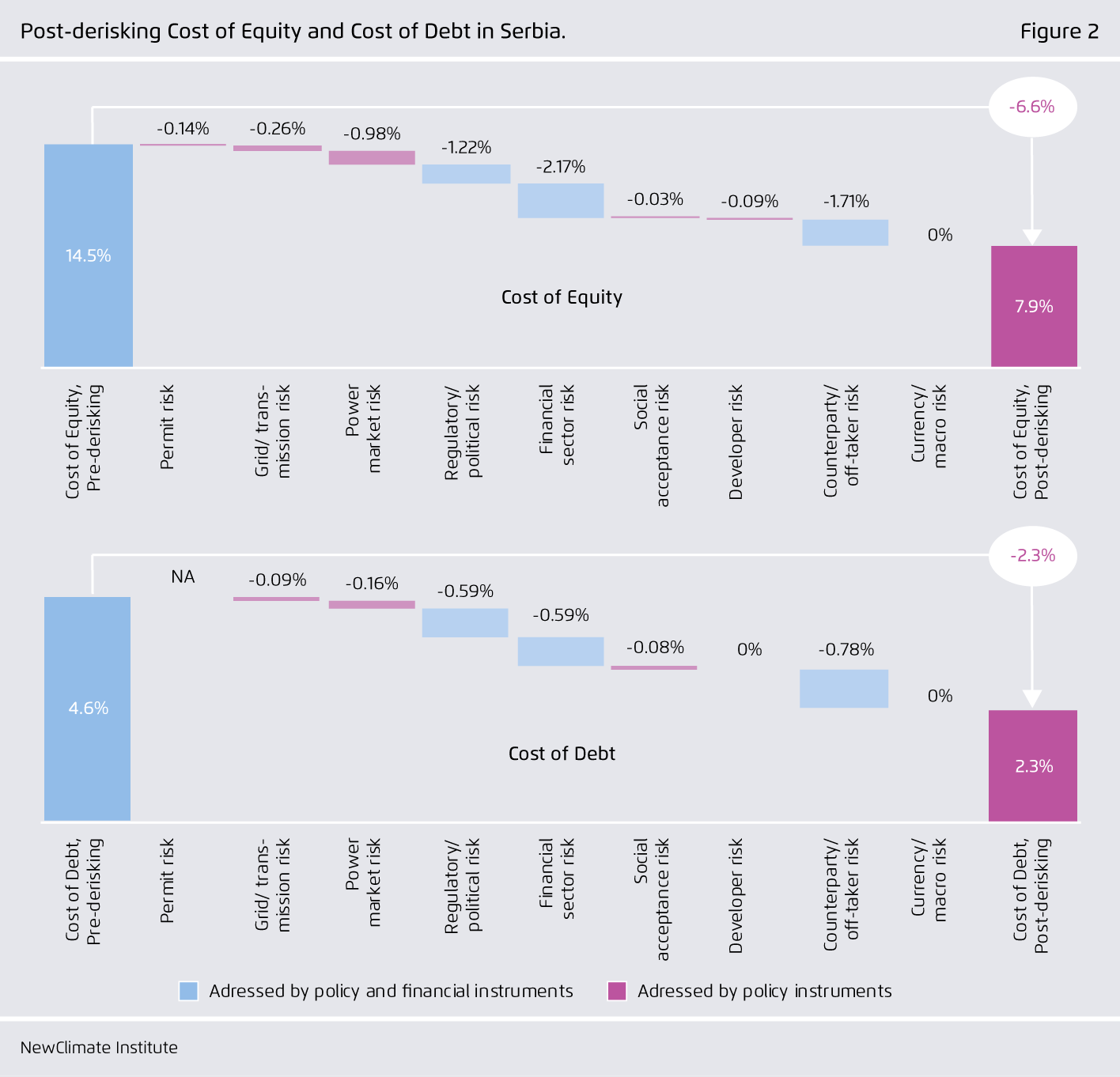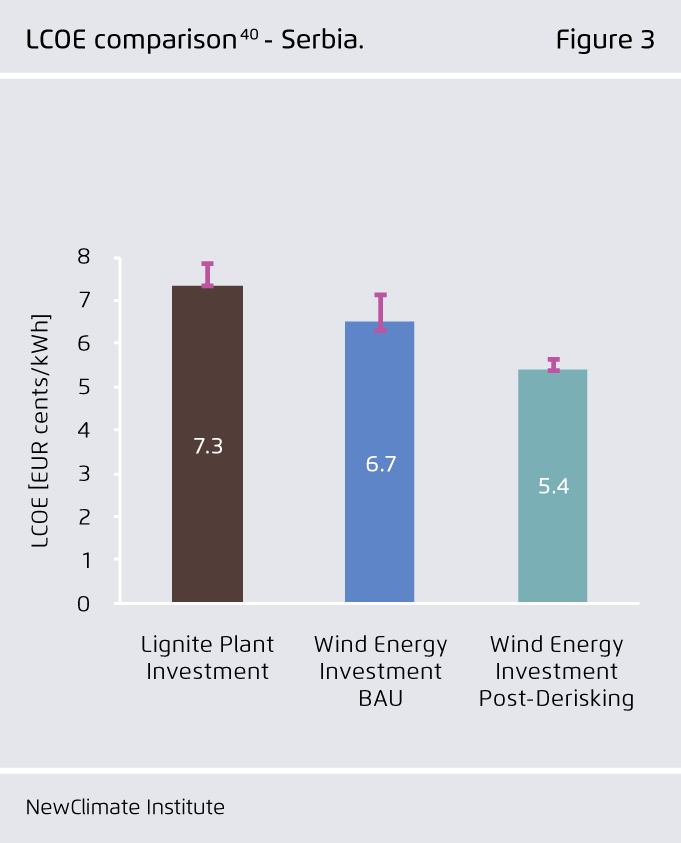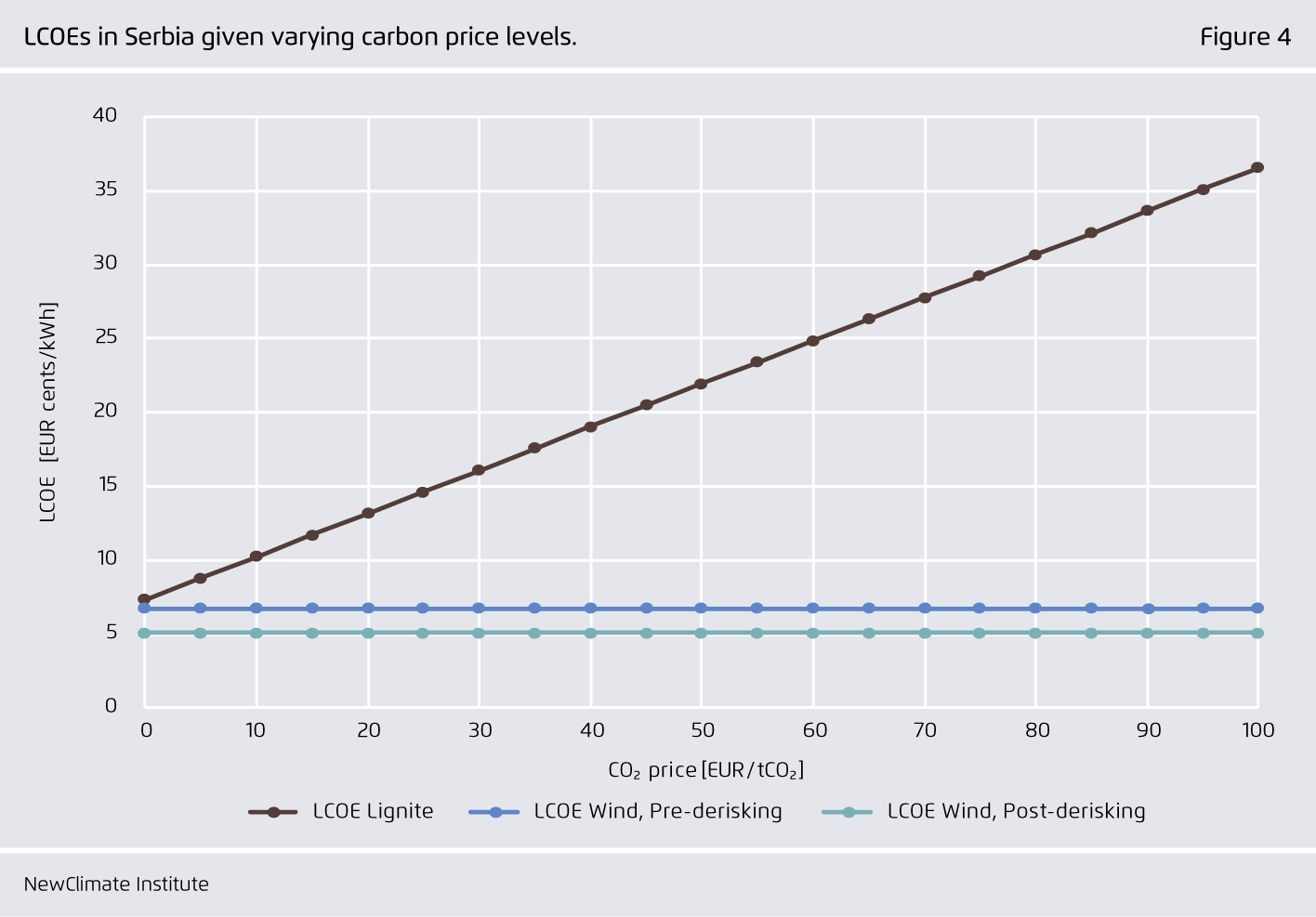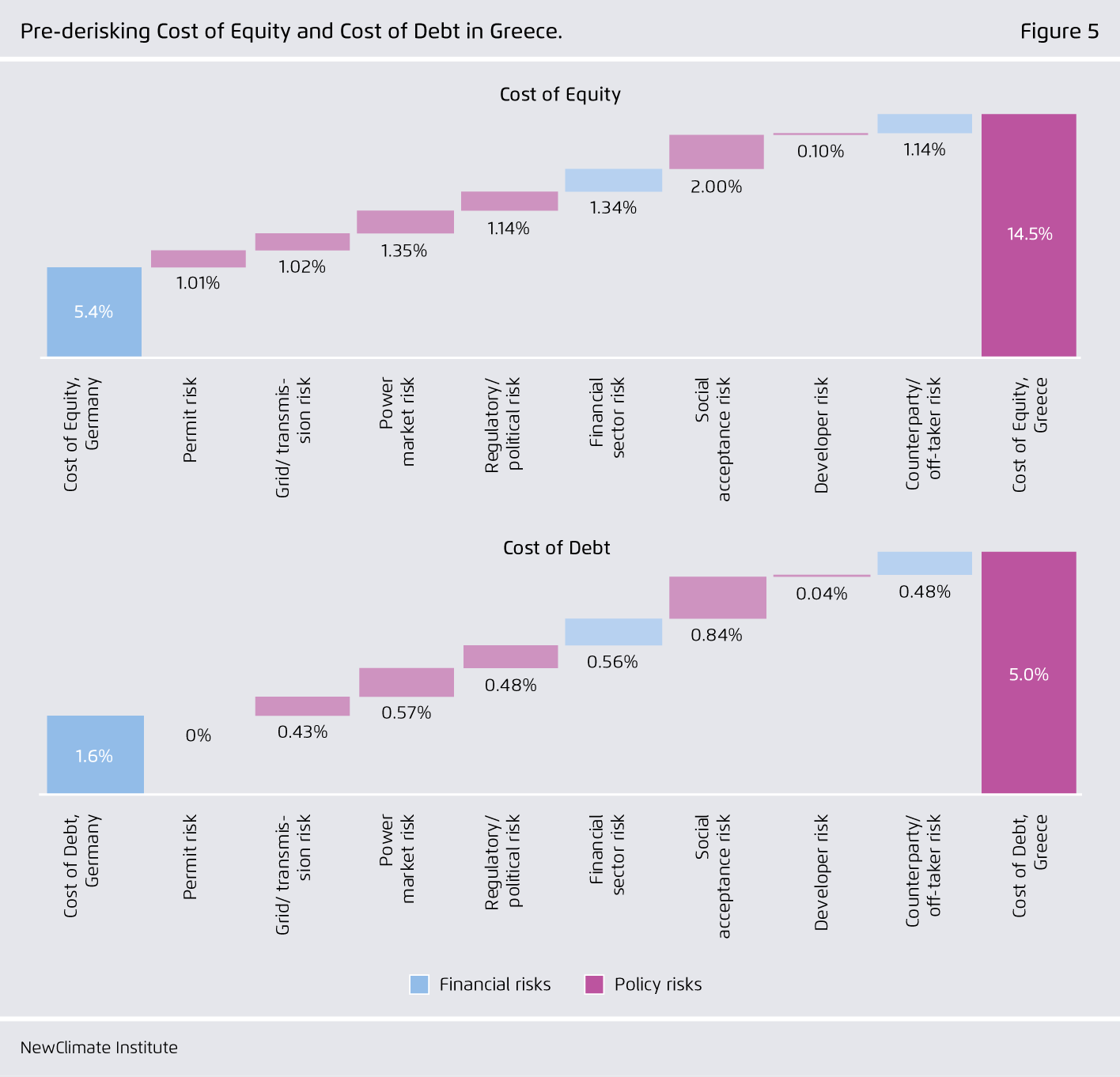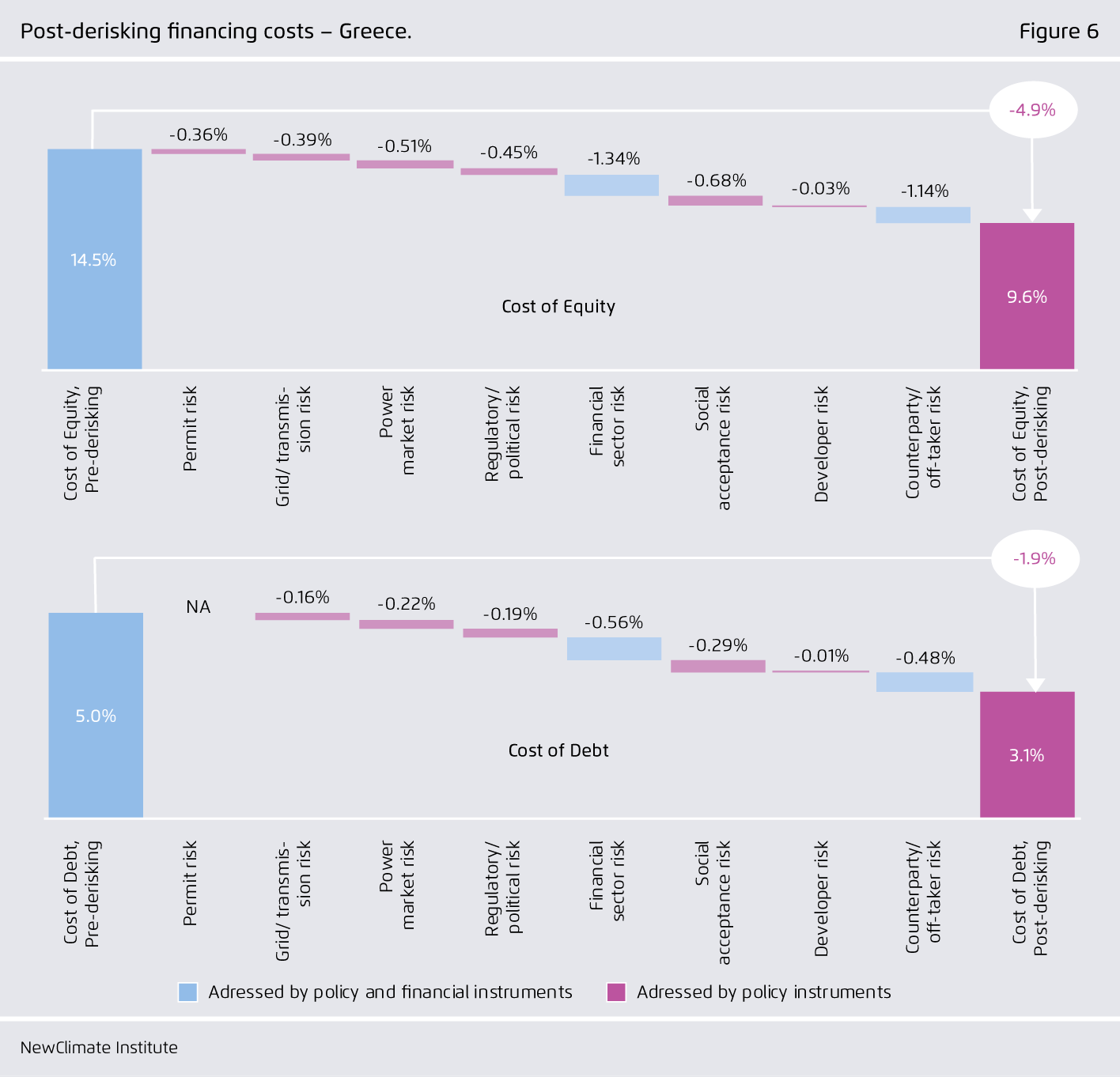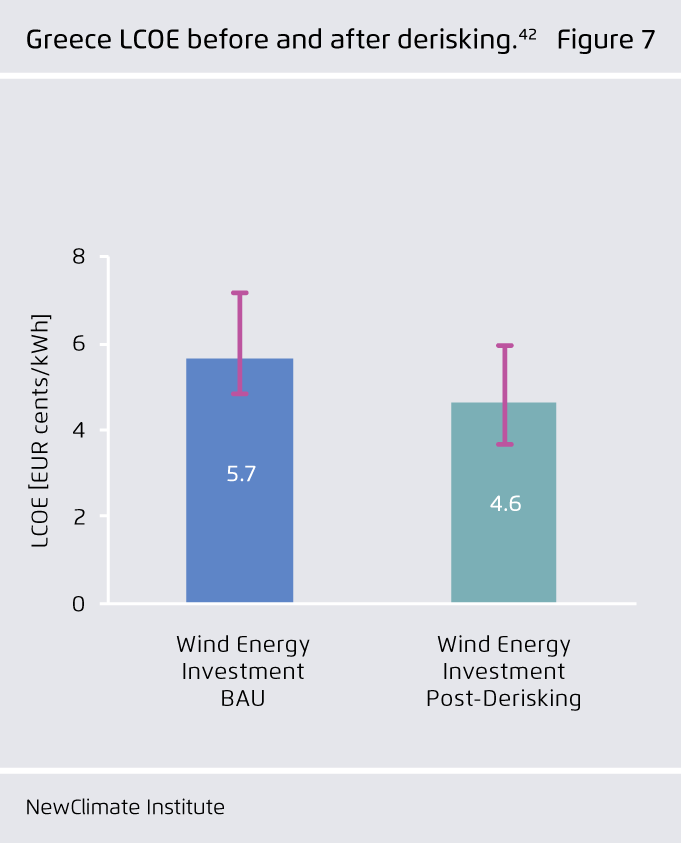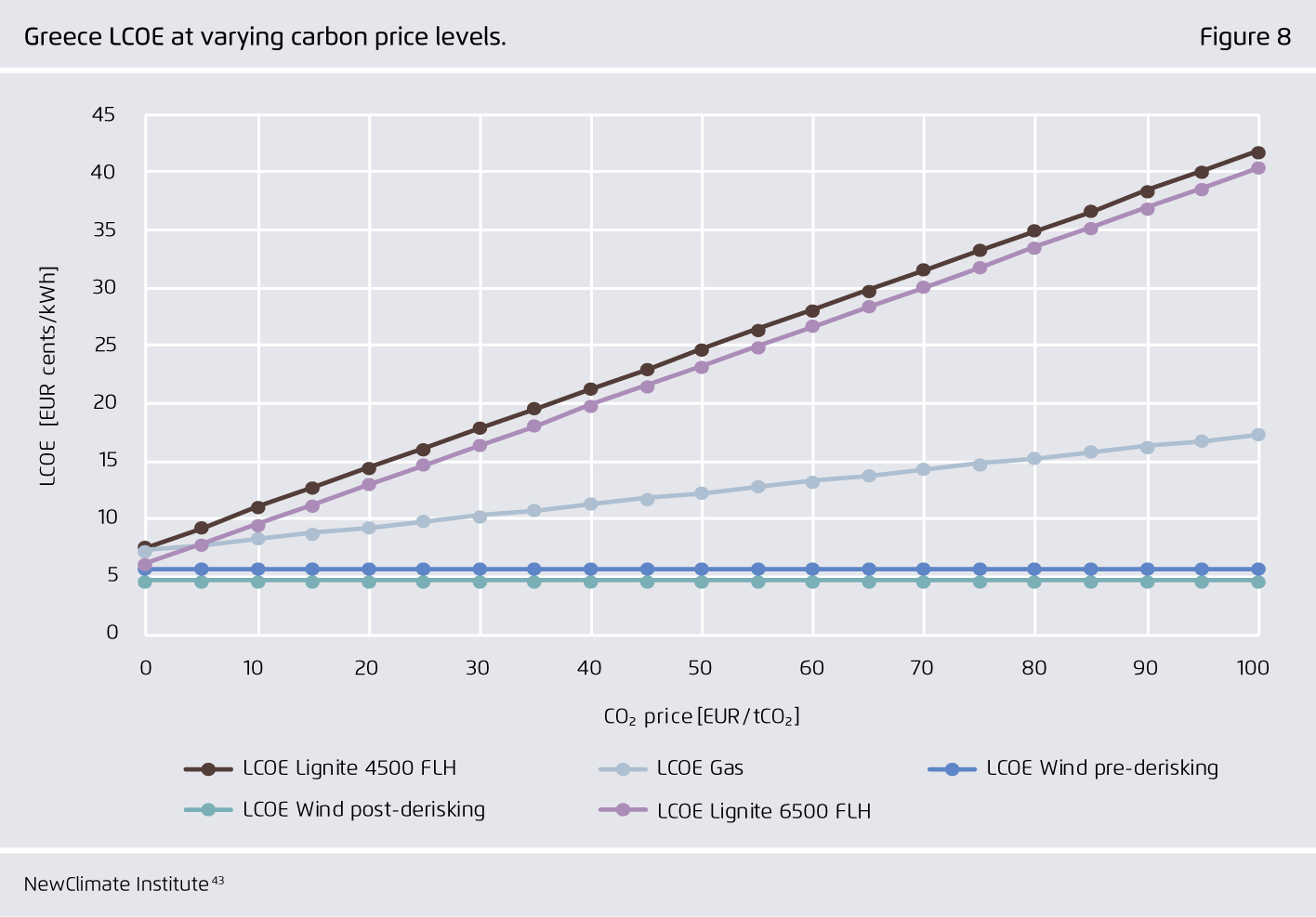-
Even when wind and solar conditions are better, investing into renewables in South East Europe is more expensive than in Western and Northern Europe.
The reason: countries in South East Europe face higher financing costs due to perceived higher investor risks. More costly than necessary renewables investments seriously hamper power system modernisation in SEE.
-
South East Europe could secure low cost renewables by introducing contractual, regulatory and market policies that greatly reduce investor risk and thereby lower financing costs.
“De-risking measures” available to governments will reduce renewable energy project costs to levels comparable or lower than those of fossil fuel investments. Low cost renewable energy projects are thus a real alternative for replacing old and polluting lignite power plants.
-
De-risking measures will lower the cost of renewable energy projects by 20 per cent. The cost for onshore wind would fall to 46 EUR/MWh in Greece and 54 EUR/MWh in Serbia.
De-risking measures with the highest impact include: (1) the proposed EU budget guarantee mechanism; (2) reliable, long-term renewables remuneration regimes and long-term renewables targets; (3) well-functioning, regionally integrated balancing and intraday markets; and (4) corporate power purchase agreements.
-
The proposed EU budget guarantee mechanism is a no-regret policy instrument and should be equipped with sufficient resources under the new EU budget 2021-2027.
The budget guarantee alone accounts for 40 per cent of the decline in financing costs attributable to the de-risking measures analysed in this study. Overall, de-risking measures enable the expansion of renewables in South East Europe at lower costs than coal, natural gas or nuclear, with attendant benefits for the climate and for human health.
Unlocking low cost renewables in South East Europe
Case studies on de-risking onshore wind investment

Preface
With South East Europe already strongly impacted by climate change, it is imperative to rapidly reduce power sector emissions. In a region that relies heavily on old and polluting lignite-fired power plants, renewables, especially wind and solar PV, offer an important, cost competitive solution for power sector modernisation and for reducing greenhouse gas emissions.
However, current market and political conditions in South East Europe restrict the cost-competitive potential of renewable energies. Lack of political commitment and complex regulatory and administrative environments translate into higher investment risks. These risks disproportionally increase the cost of capital of renewable energy investments.
The European Union is therefore pushing to “de-risk” renewable energy investments within the Union and in its neighborhood through regulatory means and through innovative financial measures.
Our study focuses on the potential economic benefits of a new EU budget guarantee mechanism for renewable energy investments that is discussed as part of the new multiannual EU budget. To analyse the likely benefits of the new budget guarantee mechanism, we commissioned experts from the NewClimate Institute to quantify its cost reduction potential alongside other non-financial “de-risking” measures. The report presents our findings for onshore wind investment in Greece and Serbia. The results are very encouraging, which strengthens the case for maintaining the proposed EU budget guarantee mechanism as part of the new multiannual EU budget. Lowest possible financing costs for renewable energies are one important component of coal-to-clean transition debates in South East Europe.
Key findings
Bibliographical data
Downloads
-
pdf 977 KB
Unlocking Low Cost Renewables in South East Europe
Case Studies on De-risking Onshore Wind Investment
All figures in this publication
Pre-derisking Cost of Equity and Cost of Debt in Serbia.
Figure 1 from Unlocking low cost renewables in South East Europe on page 21
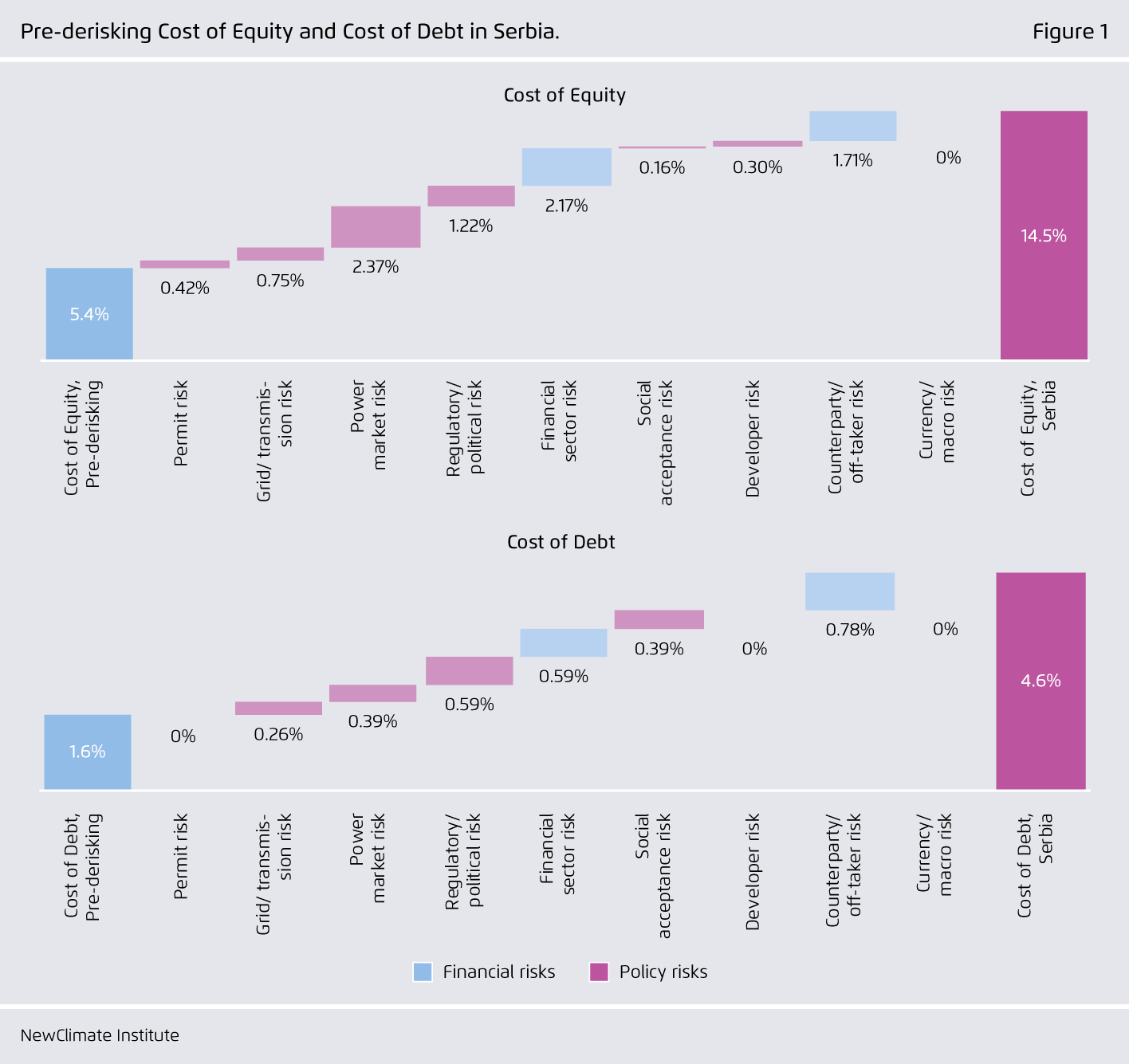
Post-derisking Cost of Equity and Cost of Debt in Serbia.
Figure 2 from Unlocking low cost renewables in South East Europe on page 23
